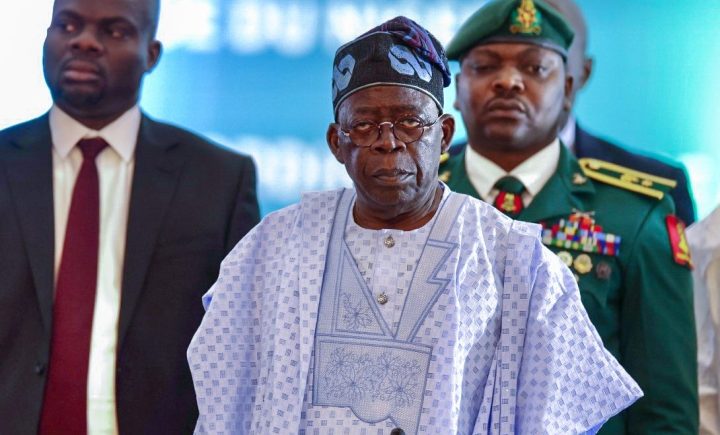ISS TODAY OP-ED
Nigeria foreign minister could reshape nation’s foreign policy architecture — but it won’t be easy

The challenge lies in navigating domestic constraints and regional dynamics to strengthen the country’s global standing.
Nigeria’s new Minister of Foreign Affairs Ambassador Yusuf Maitama Tuggar is leading the country’s foreign relations in the face of significant domestic and external turbulence. His ministry coordinates Nigeria’s 109 foreign missions, shaping their ability to deliver on the country’s agenda.
Tuggar describes his approach as ‘4D Diplomacy’, centred on development, democracy, demography and diaspora. His vision is to place Nigeria “at the pinnacle of global and regional decision-making”, and he has hinted that a new foreign policy document is in the works.
Nigeria’s external relations have faced challenges both regionally and globally. Its influence within the Economic Community of West African States (Ecowas) has been underwhelming despite having the region’s largest economy and population. The country’s commitment to Ecowas was questioned following a year-long border closure from August 2019. However, the previous administration’s establishment of an Abuja-based permanent mission to Ecowas just before this year’s polls hinted at renewed relations.
President Bola Tinubu was appointed as Ecowas Chairperson in July but faced some difficulties with his first test — handling Niger’s coup that same month. He led Ecowas in an attempt to restore democratic rule, but those efforts failed.
At the African Union level, Nigeria’s role in key initiatives such as the African Continental Free Trade Area (AfCFTA) has been marred by its initial ambivalence in signing the agreement due to protectionist tendencies. On the world stage, Nigeria’s impact within the Global South has been limited, and is further challenged by its absence from the BRICS bloc.
On the other hand, Nigerian music and movies have gained global prominence. Yet the country hasn’t sufficiently used these cultural exports for soft power gain, and Nigeria still struggles to bolster its reputation.
Need for focus on priorities
As the country looks to fortify its position in Africa and globally, the mission is clear: transition from rhetoric to tangible strategies that yield real impact.
Some key issues require attention from Nigeria’s foreign policies, including export diversification, jobs, energy transition, diaspora welfare, regional leadership, international image, climate adaptation and security cooperation.
A critical aspect is to reduce Nigeria’s long-standing reliance on oil exports. This requires a focused approach to trade and economic diplomacy. The country needs to actively court international investment into its diverse sectors like agriculture, technology, manufacturing and the creative industries. All foreign missions must be synchronised to make the investment case for Nigeria.
Unlocking international funds for infrastructure development should be a priority, setting the stage for intra-African and global exports beyond oil. Nigeria must also shed its ambivalence towards the AfCFTA and, instead, take a leadership role in its implementation.
Unemployment remains a problem, exacerbating social issues and undermining economic development. Nigeria’s foreign policy must be intricately linked with its domestic job creation strategies such as the National Talent Export Programme.
Beyond attracting investment to grow industries, labour migration agreements can be negotiated with other countries to help expand Nigerians’ horizon and potentially grow remittance inflows. This will be a more pragmatic response to the wave of emigration while work is being done to improve the conditions driving it.
Energy transition and climate change
Navigating the complexities of energy transition presents a unique foreign policy challenge. Nigeria’s reliance on oil exports has long been at odds with global calls for sustainable energy solutions, making the shift towards renewable energy essential. The transition isn’t merely an internal adjustment; it demands an agile, nuanced foreign policy that secures international partnerships for technology and funding. Economic diplomacy with leading green technology nations can help Nigeria diversify its energy portfolio, reducing its economic vulnerability to oil market fluctuations.
Nigeria’s role in climate diplomacy is a crucial facet of its foreign policy. As a significant player in Africa and potentially the Global South, Nigeria can advocate for equitable climate targets in international forums such as COP28, which kicks off on 30 November in Dubai.
The dual approach to energy and climate underscores the interconnectedness of domestic policies and international standing, and exemplifies the cohesive, actionable foreign policy Nigeria should aspire to enact.
There has been much discourse about the changing world order and growing multipolarity. Nigeria, as the largest black nation worldwide, has been relatively absent from conversations around a shift from Western hegemony. A more skilful navigation of emerging global powers, strategic alignments, and clearly communicated policy positions could help grow its influence.
Security concerns must be met with a multifaceted strategy that targets the root causes, from poverty to corruption. The violent extremist group Islamic State West Africa Province, based in Nigeria, is Islamic State’s largest terror franchise. This necessitates stronger leadership from Nigeria in initiatives such as the Global Coalition Against Daesh and the Multinational Joint Task Force to defeat extremism. The country’s successes and struggles should drive African and global policymaking on terrorism.
The Nigerian diaspora has long been underutilised in foreign policy matters. These individuals often have established lives in their host countries, so they are well-positioned to act as intermediaries for business, cultural exchange and diplomatic relations.
The new minister faces unique challenges, not least of which is the limited resources available to the Foreign Ministry to execute its ambitious mandate. In 2023, it was allocated around N98-billion ($123-million), with personnel and overhead costs already consuming 95% of that. The minister will need creative and innovative strategies to maximise impact. Partnerships will be critical, perhaps leveraging technology to facilitate diplomatic engagements.
As Nigeria grapples with complex challenges and opportunities on both the domestic and international fronts, Ambassador Tuggar has a chance to reshape the country’s foreign policy architecture. He must lead with foresight, creativity and urgency. DM
Teniola Tayo, Institute for Security Studies (ISS) Consultant and Principal, Aloinett Advisors.
First published by ISS Today.


















Comments - Please login in order to comment.